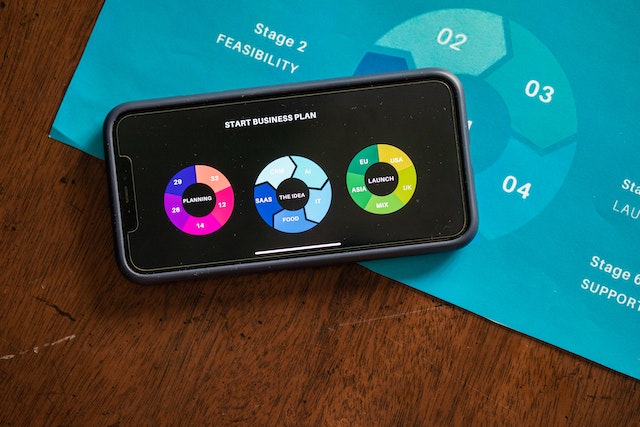Realize Your Effective and Ineffective Study Habits [100% Explained]
Learning is a life process. But the ability to realize your effective and ineffective study habits will determine the result you will get as a student (or someone else) as far as studying is concerned.
Many college and university students find it quite challenging to study for their schoolwork. Also, employees involved in projects at work that require study and careful research go through the same experience.
In this article, we shall explore:
- Ineffective study habits
- Effective Study habits
- Do you still have those ineffective study habits with you today?
Ineffective study habits
1. Procrastination
Procrastination makes many students pile up assignments and other school work until late times. And they end up getting lower grades than they could have gotten if they had been more diligent in starting early.
You can’t expect a college or university student who started preparing right from the beginning of a semester to perform poorly in his exams. And, of course, he will outperform his peers who keep procrastinating about their studies.
2. Wrong environment and atmosphere
Having a set of materials to read and study is cool, but that is not enough. Choosing the right atmosphere for your study is paramount.
Yet, you see undergraduates trying to achieve quality study in an environment that is not friendly for reading or studying. Even though such an individual may not want to admit it that is an ineffective study habit.
Imagine trying to read in a noisy environment, say a place where disco music is playing.
You sure don’t want to imagine how terrible or frustrating such an experience can be. However, you might have heard some people say they like reading while their music player is on.
2. Studying with the wrong people
Doing a particular thing with the right people can always be fun and purposeful. But when done with the wrong people, the reverse is usually the case.
The same applies to studying with the wrong people, which is an ineffective study habit.
3. All-nighter study
Regular all-nighter study is the study habit of many students, whereby they want to learn too many things in a short while.
Therefore, being deprived of sleep, they read throughout the night to make up for the lost time—- that procrastination has eaten up. Except for a few who have favored this study habit, many know that it is an ineffective study habit.
Studying at night without adequate sleep during the day affects your brain. But not only that, it ends up having a profound and negative impact on your health.
4. Having no study plan
Nothing can be worse than working without a plan.
Sadly, many students lament their underperformance in schoolwork, even though they never approached their studies with a definite plan.
To wrap up this list of ineffective study habits, one can say this is the worst. The reason is that you can trace all others to having no study plan. When you do not have a plan, falling for distractions becomes easy or even automatic.
Now that you know the ineffective study habits, you need to know the good study habits. This knowledge will make you more effective in your studies by replacing the ineffective ones with those that can improve your learning and academic attainment.
They include:
Effective study habits
The list of effective study habits include:
- Plan your time
- Set study goals for each session
- Shut off possible distractions
- Take advantage of a study group
- Give yourself break
- Examine yourself through practice tests
#1. Plan your time
It is better to start early enough than to start late. The best way to start early is through planning. No wonder students who learn have time management skills (valuable skills employers of labor are looking for) can achieve in the educational pursuit. And even later.
In all honesty, this is what many who achieve success in their academics understand that others do not.
Yes, they plan their time at the beginning of each semester or academic year. That is why you want to do the same.
First, you want to know the number of courses and course modules you will be taking. And you then plan your week, to incorporate these courses into your study is what you should do.
#2. Set study goals for each session
This study habit acts on the foundation of the first one. After you plan your time, setting study goals for each session is something you want to do.
You can achieve that by preparing your timetable.
Basically, through that step, you will know what specific course(s) you’re to read daily and the amount of time to spend on each. Thus, it makes you more focused and gives you no room for distractions.
#3. Shut off possible distractions
While in high school, one of my instructors said that the first challenge to any dedicated reading or study is to sit your ass down.
That is something you most likely agree with.
But then, that may not be true for many teenagers today. They are full of energy and want to explore many things, and thus ready and willing to keep walking or moving around.
My teacher then added to his initial statement;
Grab the book or whatever material you want to read and start studying.
Good advice! You may say.
But it is limited in scope because we live in a time more than ever where you can still be distracted while you are seated with your smartphone in your hands.
In other words, you should eliminate everything that can distract you from your study goal.
#4. Take advantage of a study group
You must have heard the ancient saying that iron sharpens iron.
While studying with the wrong people is not a good study habit, reading with the right and serious-minded people is a blessing to be more fruitful in your study.
That will help you clarify seemingly complex concepts and grant you access to learning materials you wouldn’t have gotten on your own with little effort.
As said, two good heads are better than one. Therefore, taking advantage of a formidable study group is a highly effective study habit you want to capitalize on.
#5. Give yourself break
All work and no play make Jack a dull boy.
You remember that, right?
Taking breaks at intervals— in your studying time— is something you should do.
That could be at the point in the studying session when you begin to experience mental fatigue. Or maybe when you have hit a “milestone” in your studying process.
At such a point, you may decide to take a break and listen to a good song, take a short stroll, meditate, or do a little stretching and twisting of your arms, waist, legs, or neck.
All that has a snowball effect on your brain as they calm its nerves and prepare it for another session.
#6. Write a summary of things
Indeed, it takes time to assimilate things into your brain during study time. But aside from other tactics you can use to solidify what you learned, writing a summary in your words of what you have learned will cement the whole process.
It may not be a perfect thing to do for some subjects or courses that are dominantly calculative. But it is a good bet and a way of assessing your progress and success at the end of each study session.
#7. Examine yourself through practice tests
Also, taking practice tests is a good study habit one should practice. It helps you assess things you have learned, coupled with the quality of your study session.
Do you still have those ineffective study habits with you today?
Now that you have realized that there are both ineffective and effective study habits, you should also consider habits that can make your studying more rewarding and effective.
They include:
#8. Eating good food
You are what you eat. So eating good food is a lifestyle everyone should imbibe. That is because it does not make us healthy but influences the function of our brains.
So that means having a healthy brain leads to more effective studying.
Nevertheless, you may want to meet your dietician or nutritionist for special consultation on this matter.
#9. Regular exercise
No doubt exercise is good. It makes us healthy, active, and strong. But more essentially, it enables your brain to function at its peak— what you need to study effectively.
However, you may want to consult with your medical specialist to help you determine what form of exercise is best for you.
#10. Adequate sleep
According to medical experts, our brain works best after a quality rest or sleep.
Now you see that students who procrastinate with the fallback plan to read at night close to examinations should drop such a study habit. For it is not healthy for you.
Remember, health is wealth and that you can never cheat nature.
Conclusion
We have carefully looked at both study habits that are effective and ineffective and why you need to drop some (the ineffective ones) to achieve more. However, it is worthy of note that any effective habits can work for anyone, including someone who’s not a student within the four walls of a school.








